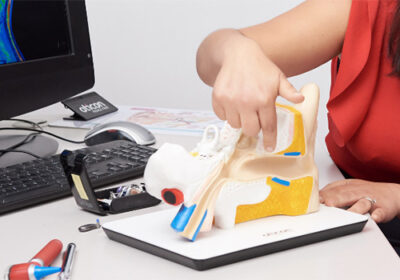
Your health is possibly heading somewhere you don’t want it to go. Early intervention enables you to grab hold of the steering wheel and steer it in a better direction.
What is early intervention?
Early intervention means stepping in at the first signs of a problem in the hope of changing the outcome.
Early intervention is used in many different areas of health and social policy including:
- Early childhood intervention services for children with disability or developmental delays because the first 3 years of life have a profound impact on a child’s later development
- Cancer screening because early detection often enables more effective treatment, which saves lives.
What is early intervention in hearing loss?
Hearing loss is often diagnosed long after the first onset of symptoms. Some estimates suggest that people who ultimately need a hearing aid have often waited 10 years before getting a hearing test.
So why do people put off getting a hearing test? Some assume the decline in their hearing is just a natural consequence of getting older so take no action. Some don’t think a little hearing loss is anything to be concerned about. Others feel afraid of what a hearing test might show so prefer not to find out.
Early intervention in hearing impairment is about getting a hearing test at the first onset of symptoms. If any hearing loss is detected, you can then receive treatment to protect your hearing, which in turn protects your social connections and cognitive function.
What are the risks of ignoring hearing loss?
Untreated hearing loss has many consequences. There are the everyday irritations like asking people to repeat themselves, missing the punchline to a joke or leaving a meeting feeling unclear on the key things that were said.
Then there’s the impact on your important relationships. You may find there’s more tension in your marriage because communication is no longer easy. You may sense more distance from your grown children or grandchildren because you can’t talk easily on the phone and can’t tell what they’re saying when you meet up. You may be drifting away from your friends because you no longer like going to dinner parties where you can’t follow the conversation.
That increasing isolation reduces your quality of life. One Dutch study showed that, if you’re under 70, every decibel drop in your hearing increases the odds of becoming severely lonely by 7%. As your hearing continues to decline, you may become more and more lonely. And that significantly increases your risk of many health problems like depression, dementia and early death.
One famous study from Johns Hopkins University in the USA, tracked 639 adults for nearly 12 years. The results showed the devastating impact of hearing loss on the brain. Mild hearing loss doubled the risk of dementia. Moderate hearing loss tripled that risk. And severe hearing loss increased the risk of dementia by 5 times.
That’s sobering. When you think about the kind of retirement you want, it probably includes staying mentally alert and drawing closer to the people you love. Nobody would deliberately choose loneliness and dementia instead of deep relationships and keeping their faculties. Yet that’s what many people unintentionally choose when they put off having a hearing test.
What are the benefits of early intervention for hearing loss?
Regular hearing checks and action on their findings can:
- Identify potential problems
- Diagnose and ensure management of underlying conditions that affect your hearing
- Prevent further damage to your hearing
- Start treatment to address any hearing loss.
Hearing loss is often treated with hearing aids. A systematic review of the evidence on hearing aids found that they help people with mild to moderate hearing loss to take part in everyday life, listen to other people and improve their general quality of life.
Think about that. Treating hearing loss means you can participate in life – you can impress people in work meetings, enjoy dinner parties with your friends and savour time with your family. It means you can listen to your loved ones and enjoy deep conversations with them. It means you can live the life you want.
Disclaimer
All information is general in nature.



